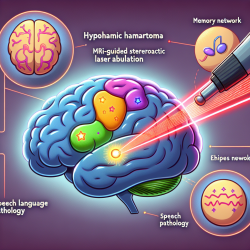Empowering Educators: Transforming Stress into Success
The COVID-19 pandemic has presented unprecedented challenges for educators worldwide, significantly impacting their mental health and professional responsibilities. According to the research article "Teachers, Stress, and the COVID-19 Pandemic: A Qualitative Analysis," teachers faced increased stressors from transitioning to remote learning, concerns for student well-being, and frustrations with administrative responses to the pandemic. These stressors, if not addressed, can lead to teacher burnout, shortages, and ultimately, poorer student outcomes.
Understanding the Stressors
The study employed a modified social-ecological framework to explore the layers of stress experienced by teachers. Key stressors were identified at the individual, classroom, and school leadership levels:
- Individual Level: Teachers reported heightened anxiety and stress due to increased professional demands and blurred work-life boundaries. Many felt overwhelmed by the need to balance personal responsibilities with the demands of remote teaching.
- Classroom Context Level: Educators expressed concerns about students' academic achievements and social-emotional development. The shift to remote learning exacerbated existing educational inequities, leaving teachers worried about students falling behind.
- School Leadership Level: Teachers felt unsupported by administrative decisions, particularly regarding safety protocols and instructional expectations. The lack of clear guidance and support from leadership contributed to feelings of frustration and burnout.
Implementing Solutions for Better Outcomes
To address these challenges, it is crucial for practitioners to focus on creating supportive environments for teachers and students. Here are some strategies that can be implemented:
- Enhance Teacher Support: Schools should prioritize teacher mental health by providing access to counseling services, mental health days, and professional development focused on stress management and resilience building.
- Foster Collaborative Leadership: Administrators should engage teachers in decision-making processes to ensure that their perspectives are considered in policy and curriculum planning. This collaborative approach can enhance teacher satisfaction and retention.
- Promote Social-Emotional Learning (SEL): Implementing SEL programs can help students develop critical skills for managing emotions, setting goals, and establishing positive relationships. Teachers should be trained to integrate SEL into their daily instruction to support student well-being.
- Leverage Technology Effectively: Providing teachers with adequate training and resources to use technology effectively can ease the transition to remote or hybrid learning environments. Ensuring equitable access to technology for all students is also essential.
Encouraging Further Research
The study highlights the need for ongoing research to understand the long-term impacts of the pandemic on teachers and students. Practitioners are encouraged to engage in further research to explore innovative solutions for supporting educators and improving educational outcomes.
To read the original research paper, please follow this link: Teachers, Stress, and the COVID-19 Pandemic: A Qualitative Analysis










